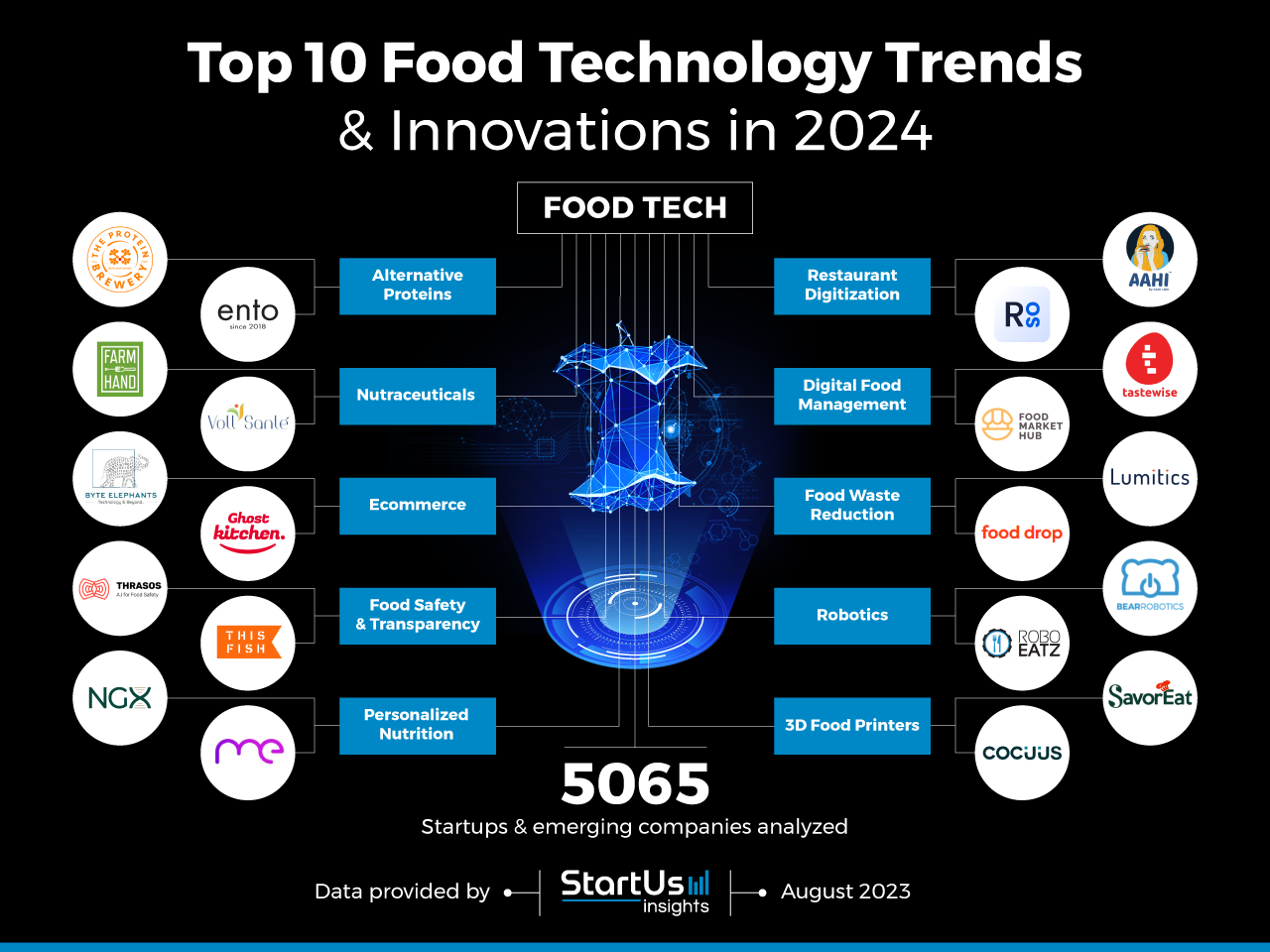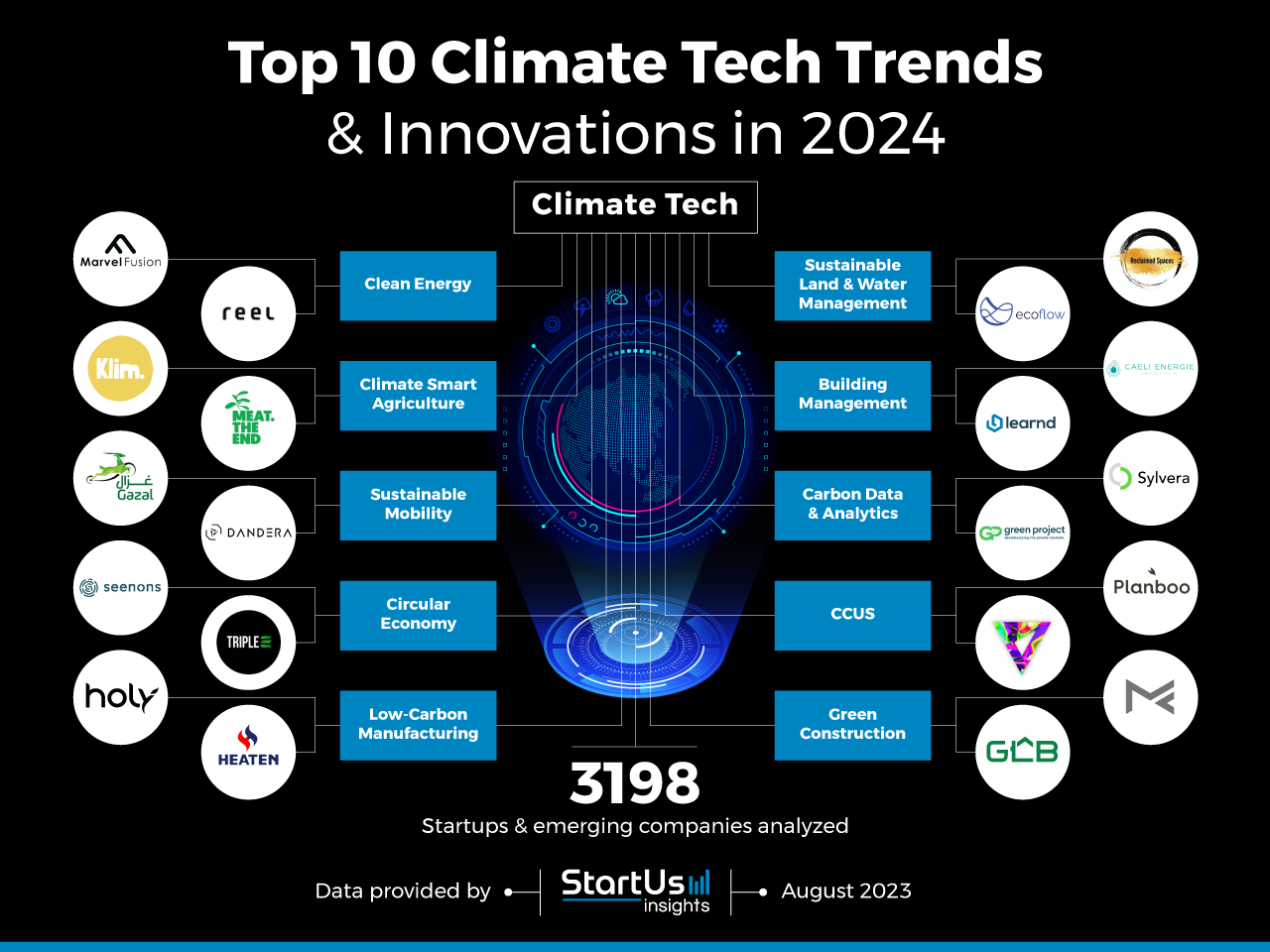Wishing you a joyous New Year 2024, dear reader!
Thank you for embarking on this journey with me, exploring the dynamic influence of technology on the vast landscape of FoodTech, AgTech, and the consequent impact on the Climate, and vice-versa!
As we step into the new year, may your curiosity thrive, and your quest for knowledge continue to unfold!
Here's to another year of discovery and growth! 🎉🌟
Top Predictions for 2024 for FoodTech
🔎Domination of AI in Food Marketing
AI will revolutionise food marketing by enabling highly targeted and personalised campaigns, leveraging predictive analytics to understand consumer preferences. Advanced algorithms to analyse vast datasets to predict trends, optimising product positioning, and messaging. Additionally, AI-driven chatbots and virtual assistants are already enhancing customer engagement, providing real-time assistance, and fostering interactive experiences in the food industry.
🔎Food redefined by digital and pop culture
The intersection of digital and pop culture is set to redefine the food landscape with social media platforms continuing to be major influencers, shaping culinary trends and driving the popularity of visually appealing and Instagrammable dishes. Moreover, the rise of online communities and food-centric influencers will contribute to the globalisation of culinary trends, creating a dynamic and diverse food culture influenced by the digital and pop culture realms.
🔎Alternative Proteins fighting for acceptance and scale
Alternative Proteins have indeed made a mark but the question of their wider acceptance and their scaling cheaply is still a question due to ample misconceptions. Cellular Agriculture, Precision Fermentation, and Molecular Farming have been at the forefront of alternatives along with plant-based but the complexity that lies in mass production and acceptance is still a long way to go.
Flavour and Ingredient Trends in 2024 by Tastewise
Top Predictions for 2024 for AgTech
🔎UAVs soaring high
UAVs (Unmanned Aerial Vehicles) are seeing an uptake due to their advantageous advanced monitoring and precision farming capabilities. Drones equipped with sophisticated sensors and imaging technology will enable farmers to gather real-time data on crop health, optimise resource allocation, and enhance overall farm productivity through data-driven insights.
🔎Autonomous Farming Equipment taking over fields
Autonomous farm equipment is set to revolutionise agriculture, enhancing efficiency and reducing labour-intensive tasks. With the integration of advanced sensors, machine learning, and AI, these autonomous systems will enable precision farming, optimising resource use and contributing to sustainable agricultural practices.
🔎Regenerative Agriculture for the win
Regenerative agriculture is set to play a pivotal role in transforming conventional farming practices. With a focus on soil health, biodiversity, and carbon sequestration, regenerative agriculture is anticipated to gain widespread adoption as farmers recognise its potential to enhance resilience, mitigate climate change impacts, and promote sustainable food production.
Top Predictions for 2024 for ClimateTech
🔎Imminent boom of Green Hydrogen
The growth of Green Hydrogen is anticipated to soar, fueled by increasing investments, advancements in electrolysis technologies, and a global push toward decarbonisation. The demand for clean and sustainable energy sources, coupled with supportive government policies, is expected to drive the expansion of green hydrogen projects across various industries.
🔎Growing prominence of Circular Economy
The applications of circular economy are reaching new heights as businesses and consumers alike prioritise sustainable practices. Circular economic models, emphasising recycling, reusing, and reducing waste, are gaining widespread recognition and adoption, reflecting a global commitment to address environmental concerns and promote resource efficiency.
🔎Forging fungi-based climate solutions
Fungi-based climate solutions are gaining traction as innovative and sustainable approaches to address environmental challenges. From mycelium-based materials replacing traditional plastics to mycoremediation applications in waste management, fungi are playing a crucial role in providing eco-friendly solutions for a more sustainable future.








